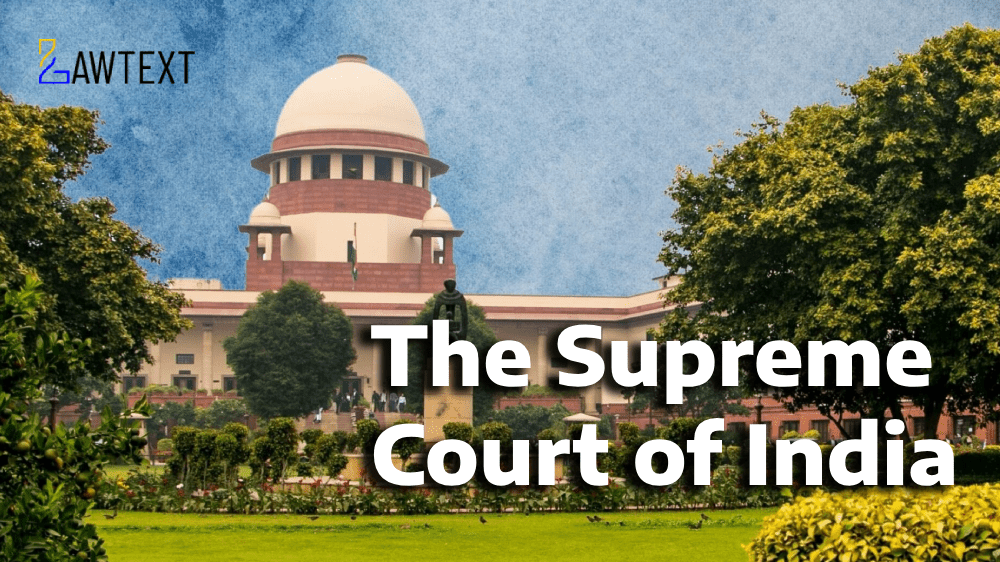Supreme Court Affirms Trust Status of Kamakala Kameshwarar Temple Property. The apex court dismisses the appellant's claim to ownership, holding that the property is part of a trust under the management of the temple.

CASE NOTE & SUMMARY
The Supreme Court dismissed the appellant's claim of absolute ownership over a property adjacent to the Kamakala Kameshwarar Temple. The court upheld that the property, as per a 1929 compromise decree, is a trust property to be managed by the head of the Guru Manicka Prabhu Temple for the maintenance of both the Prabhu Temple and the Kamakala Kameshwarar Temple. The appellant, having failed to manage the property according to the terms of the trust, could not claim absolute ownership.
1. Background:
- The dispute concerned immovable property adjacent to Kamakala Kameshwarar Temple.
- The property originally belonged to Rai Raja Eswardoss Diawanth Bahadur, whose descendants faced insolvency.
- The property was sold to Mr. W. Ramakrishna Lala in 1917 and later placed under a trust deed.
- The appellant claimed ownership but mismanaged the property, which was meant for temple upkeep.
2. Key Legal Issue:
- The appellant contended the property belonged to him absolutely, while the respondent argued it was a trust property under a compromise decree dated 26.11.1929.
3. Previous Proceedings:
- The appellant had previously initiated proceedings to claim hereditary trusteeship over the temple, but this was rejected.
- A 1990 ruling declared the Kamakala Kameshwarar Temple as a public temple, a decision that became final after the appellant’s appeal to the Supreme Court was dismissed.
4. High Court's Judgment:
- The Madras High Court, relying on the 1929 decree and conveyance deeds, ruled that the suit property was a trust property meant for the maintenance of the temples, not the personal property of the appellant.
5. Supreme Court Judgment:
- The Supreme Court affirmed the High Court’s findings, rejecting the appellant's plea and dismissing the appeal.
Ratio Decidendi:
- The court based its decision on the terms of the compromise decree from 1929, which established the property as a trust for the benefit of the Kamakala Kameshwarar Temple and the Guru Manicka Prabhu Temple.
- The appellant’s failure to manage the property for the intended purpose disqualified him from claiming absolute ownership.
Relevant Acts and Sections:
- Code of Civil Procedure, 1908 – Section 92, regarding suits related to public trusts, was discussed as the appellant had not complied with its procedural requirements.
- Transfer of Property Act, 1882 – Sections 10 and 11 were referred to in relation to void conditions that could restrict the use of the property. However, the court upheld that the trust restrictions applied.
Tags:
Supreme Court, Trust Property, Kamakala Kameshwarar Temple, Religious Endowments, Civil Appeal, Public Trust.
ISSUE OF CONSIDERATION
SRI SIDDARAJA MANICKA PRABHU TEMPLE VERSUS THE IDOL OF ARULMIGHU KAMAKALA KAMESHWARAR TEMPLE
Citation: 2024 LawText (SC) (9) 132
Case Number: CIVIL APPEAL No. 8374 OF 2024
Date of Decision: 2024-09-13
Case Title: SRI SIDDARAJA MANICKA PRABHU TEMPLE VERSUS THE IDOL OF ARULMIGHU KAMAKALA KAMESHWARAR TEMPLE
Before Judge: (ABHAY S. OKA J. , AUGUSTINE GEORGE MASIH J.)
Appellant: SRI SIDDARAJA MANICKA PRABHU TEMPLE
Respondent: THE IDOL OF ARULMIGHU KAMAKALA KAMESHWARAR TEMPLE

